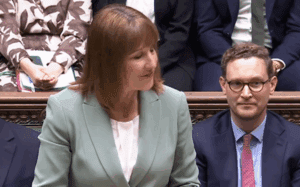The government will have to significantly raise taxes to cover the sweeping increases in public spending announced in today’s Spending Review, according to leading audit, tax and business advisory firm Blick Rothenberg.
Robert Salter, a director at the firm, warned that headline commitments such as the £11 billion annual uplift in the defence budget would likely require a 1.5p hike in the basic rate of income tax, if funded directly.
“Given the size of the government’s planned spending increases, significant tax rises are inevitable in the coming months,” said Salter. “The increase in the Defence budget alone is equivalent to a 1.5p rise on the basic rate of income tax.”
The Spending Review, announced by Chancellor Rachel Reeves, included a series of headline-grabbing investments across defence, skills, infrastructure and housing. Among them was a £1.2 billion boost to training and apprenticeships, designed to support Labour’s pledge to create 120,000 new skilled workers by 2030.
While the funding increase is likely to be welcomed by businesses, Salter raised concerns about accessibility: “Sadly in many cases this additional funding may not reach the organisations who need it, because many firms are unable to access training due to the restrictive conditions associated with the apprenticeship levy.”
On energy policy, Salter praised the government’s ambition to increase domestic energy capacity and improve security, including investment in nuclear and carbon capture technologies. However, he warned of the risk of spiralling costs and delays.
“There is a real risk that the costs of these major nuclear and carbon capture and storage facilities will significantly overrun, and that delivery deadlines will be missed. This has happened in the past, and the government must ensure history does not repeat itself.”
Despite the Spending Review being framed by the Chancellor around themes of economic growth and security, Blick Rothenberg highlighted a disconnect between this narrative and some of the government’s recent tax decisions—most notably the rise in employers’ national insurance contributions earlier this year.
Salter said: “While Rachel Reeves talked consistently in her Spending Review about economic growth, economic security and the importance of these issues for workers, many measures that the government have previously announced—such as the increase in employer NICs—have actually increased unemployment.”
The remarks come amid growing pressure on the Chancellor to explain how the government will fund its long-term capital commitments without further increasing the tax burden on households and businesses.
With borrowing costs elevated and debt interest at record levels, tax policy decisions taken in the coming months are likely to shape the credibility of Labour’s broader economic programme—especially ahead of the next Budget and any fiscal rule assessments by the Office for Budget Responsibility.
Read more:
Government’s spending surge to trigger significant tax rises, says leading advisory firm
